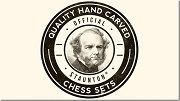In this the seventh year of the competition in memory of Geof, the judges, Stuart Hutchings, Dave James and Howard Williams, looked at 42 games which met our basic criteria. In short, these are wins or draws by Welsh players against foreign opposition rated both 2250 or over and 150 points or more above the Welsh player. This was the most we’ve ever had to consider and over double the 2015 total. The Welsh player lost in 91 other such games (2015: 71). The 42 games consisted of twelve wins (again a record for the competition) and 30 draws. Particular mention should be made of Carl Strugnell’s contribution of as many as twelve games to the list. Others with multiple candidates were Tim Kett and Charles Morris (five each), David Sands and Richard Miles (three) and Nigel Ralphs and Tom Brown (both two).
Among the 30 draws, there were a number of long, steady games such as Olivia Smith’s game against GM Ketevan Arakhamia-Grant, Richard Jones’ encounter with the Norwegian GM Jon Hammer and David Sands’ draw against the Austrian IM Andreas Diermair, all in the Baku Olympiad. But the game that led the field in this category was Nigel Ralphs’ success at the South Wales International in holding the young Icelandic GM Hjorvar Steinn Gretarsson, in spite of a 550 point rating difference! There were also a number of draws where our player came close to winning such as Tim Kett’s games against grandmasters Boris Chatalbashev (Bulgaria) and Keith Arkell. Nigel Ralphs’ draw with Chris Duncan was another game where the Welshman stood better, on this occasion as a result of an elegant temporary piece sacrifice. These three games were all played in the SWI.
Among the 12 decisive games, it has to be admitted that at least half could easily have gone the other way. Among them was Tim Kett’s fight-back against the English IM Thomas Rendle from a fairly dreadful opening. Of our final shortlist of 5 games, Lloyd Powell’s game against the Swiss IM, Hung Fioramonti, in the European Club Cup in Serbia featured excellent exploitation of Black’s somewhat rustic play. Lloyd could easily have gone wrong in the complications. Carl Strugnell was responsible for all the remaining four wins. One was a win against Peter Drenchev, a Bulgarian GM. As noted in Carl’s helpful and honest comments, this had a lot to do with his opponent’s extreme time pressure but Carl still had to find some moves. There were also two excellent examples of persistence and refined technique. In the Olympiad against the Russian IM Andrei Obodchuk, after his opponent missed an early chance, Carl won an extremely complicated rook and knight endgame where there were several dangerous passed pawns on both sides. And against the Spanish IM Miguel Santos Ruiz he exploited Black’s errors to win another rook and knight position. But the judges unanimously felt that his win against the Russian GM, Igor Naumkin, in the Cappelle-la-Grande Open last February deserved the 2016 prize. Carl imaginatively deferred castling to launch a dangerous attack against Black’s king. Black tried to sacrifice his way out of trouble but this was met by precise play leading to a deserved victory.
The five games, most with notes, can be found in .pgn format here.
The rules for this competition have been unchanged since it was introduced in 2010 (link to rules) and we feel it is time to review them. If you consider there should be changes please e-mail Howard Williams by 30 June with your suggestions (howard.swnynant@btinternet.com).






